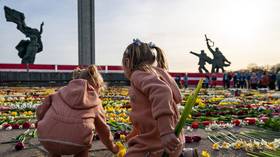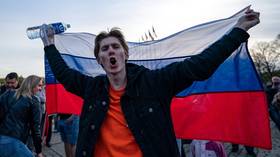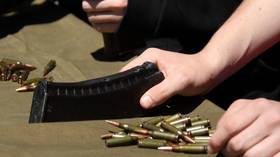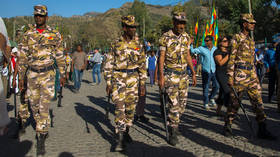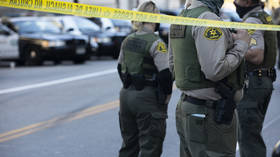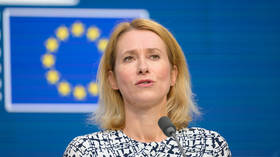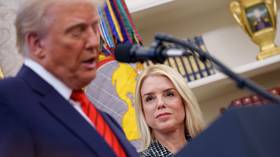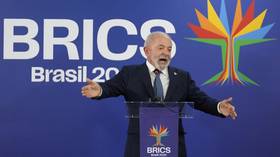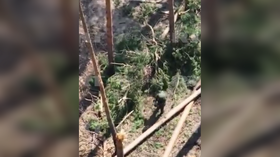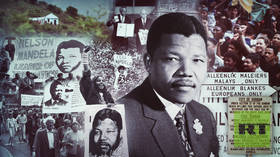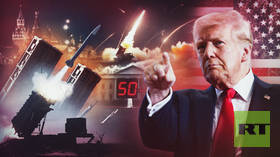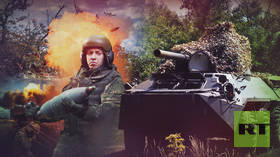EU member makes decision on Soviet-era memorials
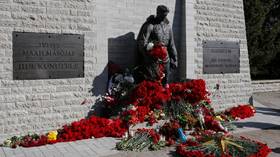
All Soviet-era memorials in Estonia have to be removed “as soon as possible,” the country’s prime minister, Kaja Kallas, said during a press conference on Thursday. She added that the government was unanimous on the matter.
Speaking after a cabinet meeting, Kallas said that there are between 200 and 400 monuments with Soviet symbols in the country, a figure larger than initially thought.
“We have made a key decision – all monuments with Soviet symbols must be removed from the public space, and this will be done as soon as possible,” the prime minister said.
She added that “the specific dates and sequence will depend on the readiness of local governments and on logistics plans.” The government plans to involve the private sector in the removal process.
Kallas also discussed the push to remove the Soviet T-34 tank displayed as a memorial in the predominantly Russian-speaking town of Narva. The town’s mayor, Katri Raik, had earlier asked the government to find a solution amid the backlash among locals against a plan to remove the monument. She said about 150 people had gathered near the memorial on Wednesday after rumors emerged that the demolition was imminent.
“Since Narva is not going to do this {demolish the monument}, there is tension there, it is clear that the Estonian state and government should independently make this decision, that is to remove both this element with symbolic value and others,” Kallas said.
She stressed that it is not forbidden to pay respects to the memory of the dead, but it should be done “in the right place, i.e. at the cemetery.”
“A tank is a weapon that kills, it is not a memorial object. These same tanks actually kill people on the streets in Ukraine,” the prime minister explained.
Claiming that the Russian “aggression” in Ukraine has opened some “long-existing wounds” in Estonian society, Kallas said that the Soviet monuments serve as a reminder of these wounds and thus should be removed. According to her, “the government is unanimous on this issue.”
Kremlin spokesman Dmitry Peskov described the Estonian government’s decision to demolish the Soviet memorials as “outrageous” and said that this practice must be strongly condemned.
“{it is} a war with a common history, getting rid of monuments is outrageous and does not make any nation, including Estonia, look better,” he said.
Peskov admitted that there is no way to prevent the Estonian authorities from destroying the memorials but expressed hope that Russian historical societies would come up with proposals to save them by bringing them to Russia.
Kallas' announcement came two days after the mayor of Riga, the capital of neighboring Latvia, stated that the famous ‘Monument to the Liberators of Soviet Latvia and Riga from the German Fascist Invaders’ would not only be removed from the city’s Victory Park but also dismantled and recycled.
World War II ended with Latvia, Lithuania and Estonia being returned to the USSR following the liberation of their territories from German troops by the Soviet forces.
The Soviet-era monuments, described by some in Baltic countries as “symbols of Soviet re-occupation,” have long been targeted by local nationalists. The campaign for their removal intensified on the state level after Russia launched its military operation in Ukraine in late February. Moscow has criticized the actions of the Baltic countries’ authorities, calling them “provocational.”
